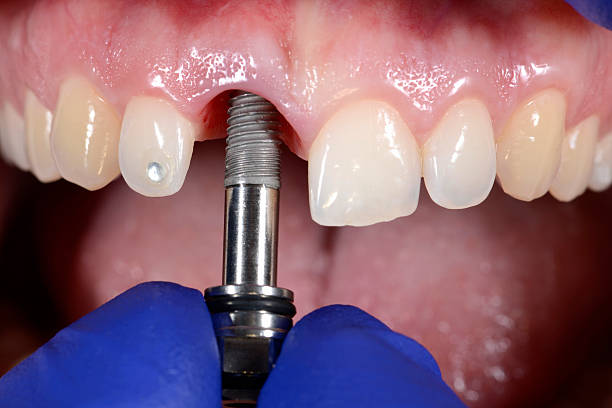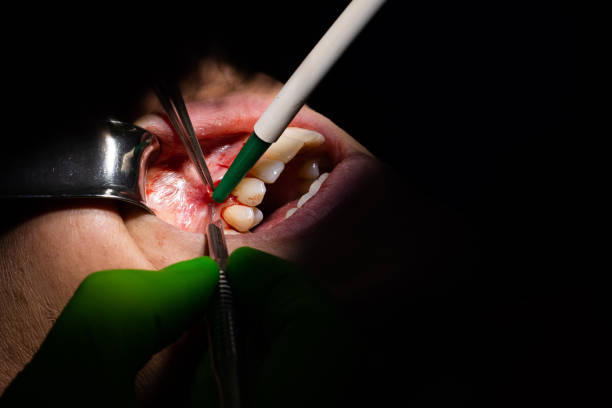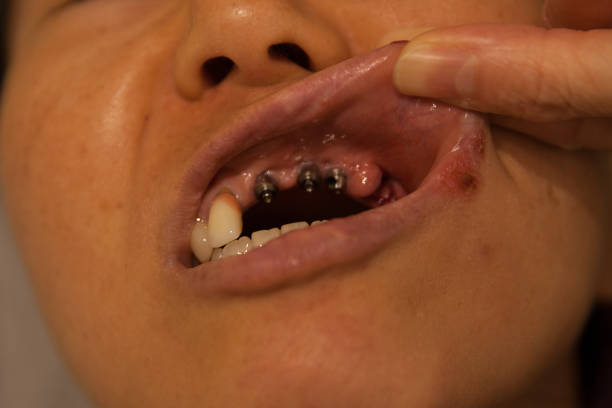Dental Implants Complications #1 – Post-surgery bleeding
Some bleeding should be expected for about 1-2 days after surgery. Biting gently on a gauze pad placed over the surgery area for 30 minutes should normally stop the bleeding. Excessive bleeding is not normal and you must call your dentist immediately.
Dental Implants Complications #2 – Damage to adjacent tissues
Dental implant complications related to surgical errors affecting adjacent teeth, nerves, or sinuses are directly linked with the experience and skills of the dentist. An experienced and skilled implant dentist can identify potential problems
by examining x-rays or CT-scan, designing the proper surgery plan, and executing it successfully without complications. Although there is always a possibility of implant complications, the proper selection of implant dentist is the main factor
for a successful treatment.
Dental Implants Complications #3 – Infections of the implantation area
Infections of the implantation area are the most common dental implant complications. Implant infection is a condition referred to as peri-implantitis which is characterized by inflammation or swelling of the tissues surrounding the implantation area. Peri-implantitis is a form of periodontal disease that can lead to inflammation, bone loss, and implant failure if not treated properly. Although implant infections are usually caused by the presence of bacteria during or immediately after the oral surgery for the placement of the implant, an implant infection can happen months or years after surgery.
Dental Implants Complications #4 – Dental implant inflammation
Inflammation and swelling of the surrounding tissues is the immediate symptom of implant infection. Improper placement or size of the abutment and crown restoration, which puts it under pressure and traumatizes the soft tissues around or beneath it, may also cause dental implant complications. Dental implant inflammation triggers a response from the body’s immune system that attacks the infected gingival and bone cells. This can result in bone loss around the implant and if it continues the implant will become loose and will have to be removed. The dentist has to eliminate the inflammation as soon as possible to prevent the further bone loss that can cause implant failure. The inflammation can be treated by antibiotics and cleaning if caused by implant infection, or by removing or adjusting the defective restoration if caused by trauma.






